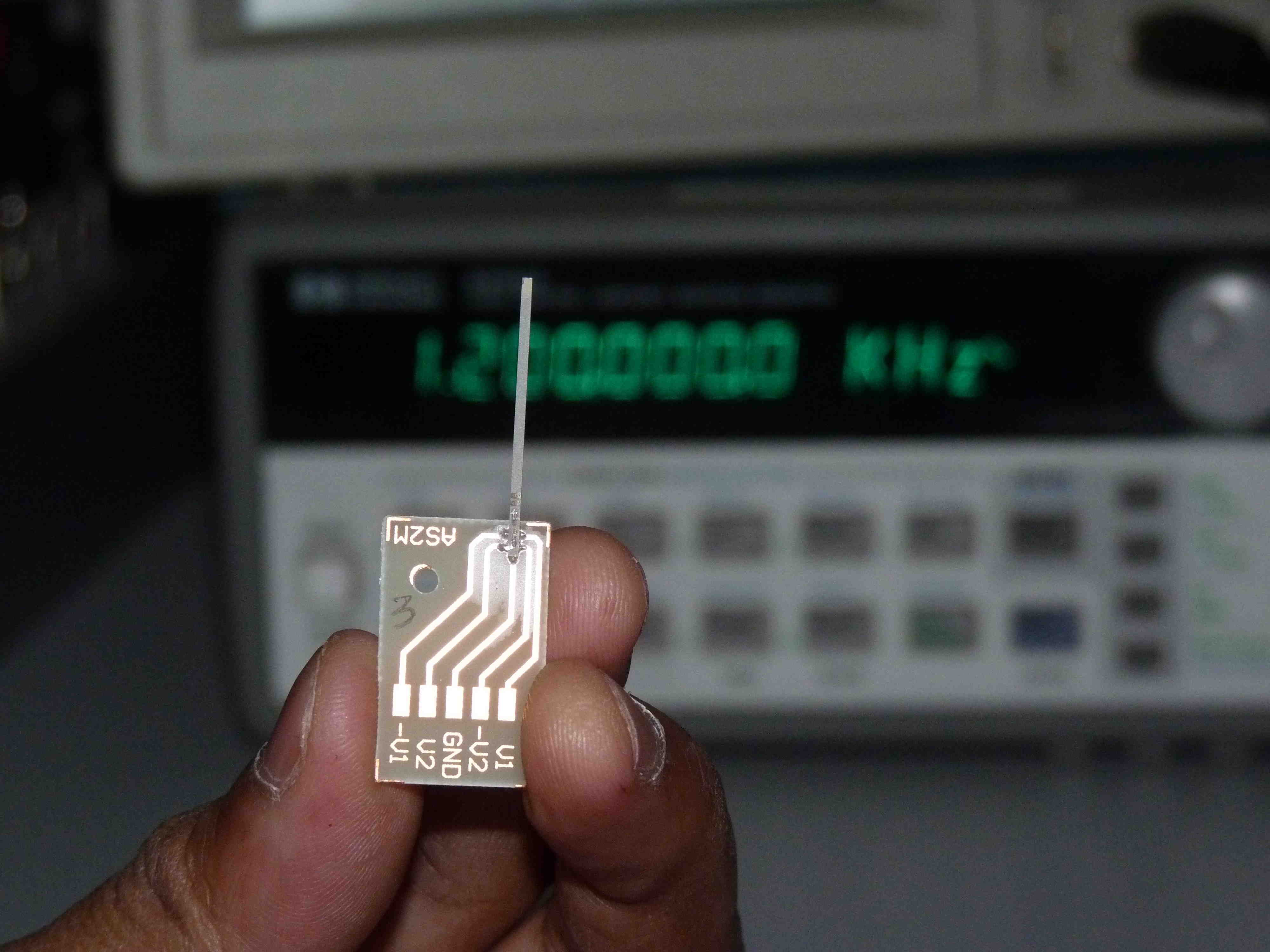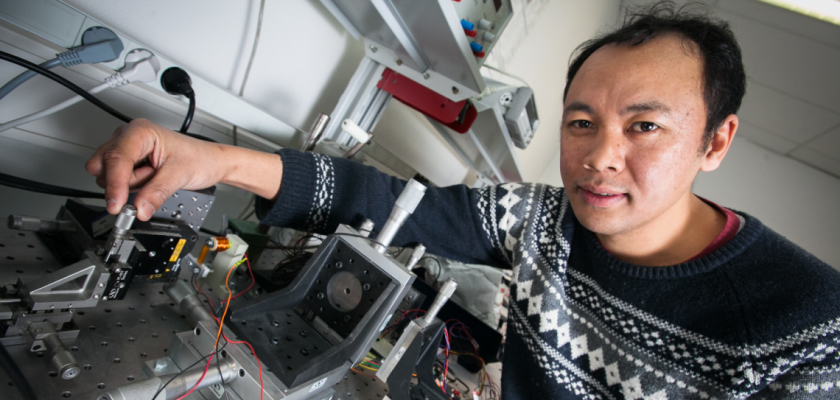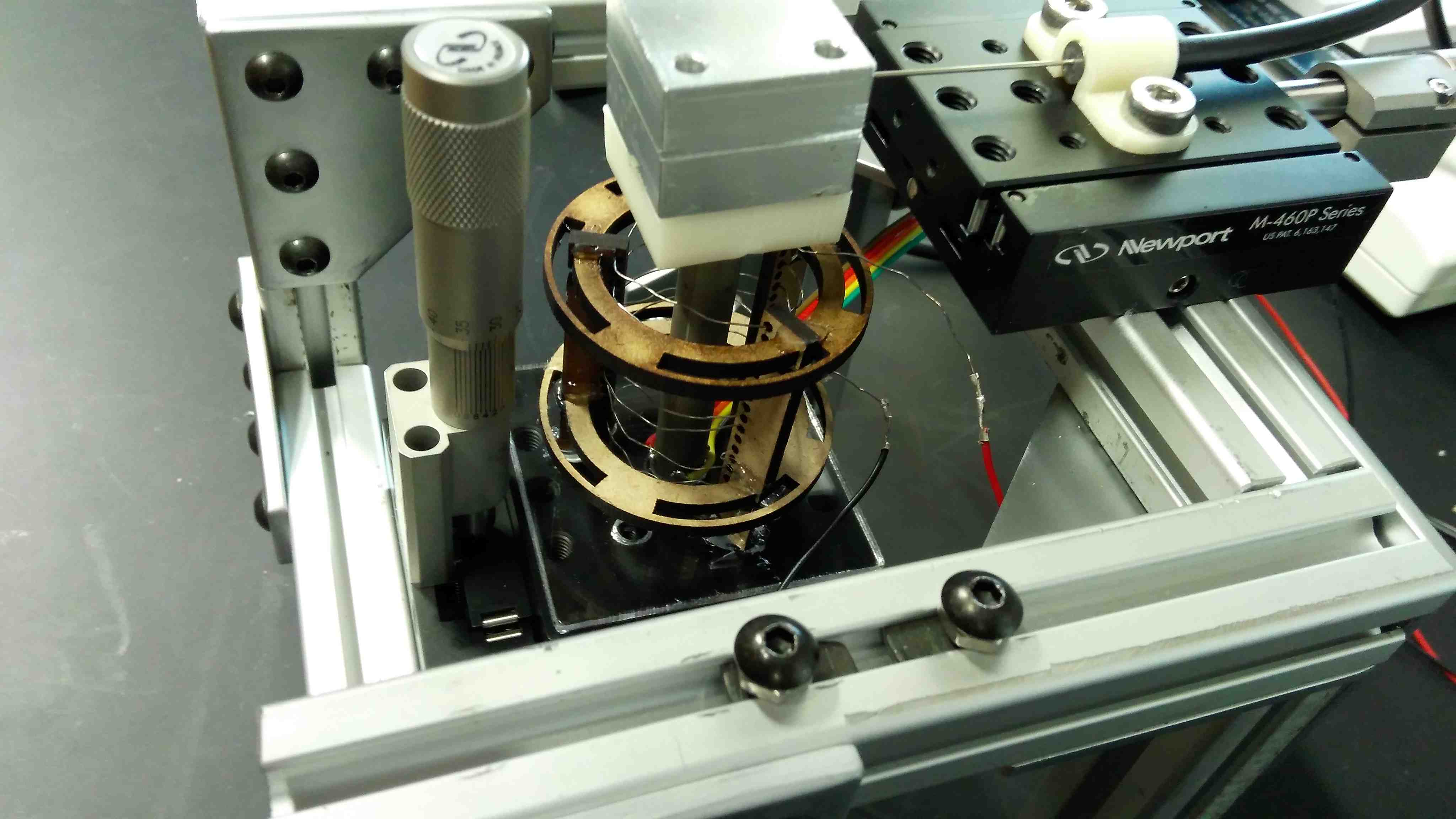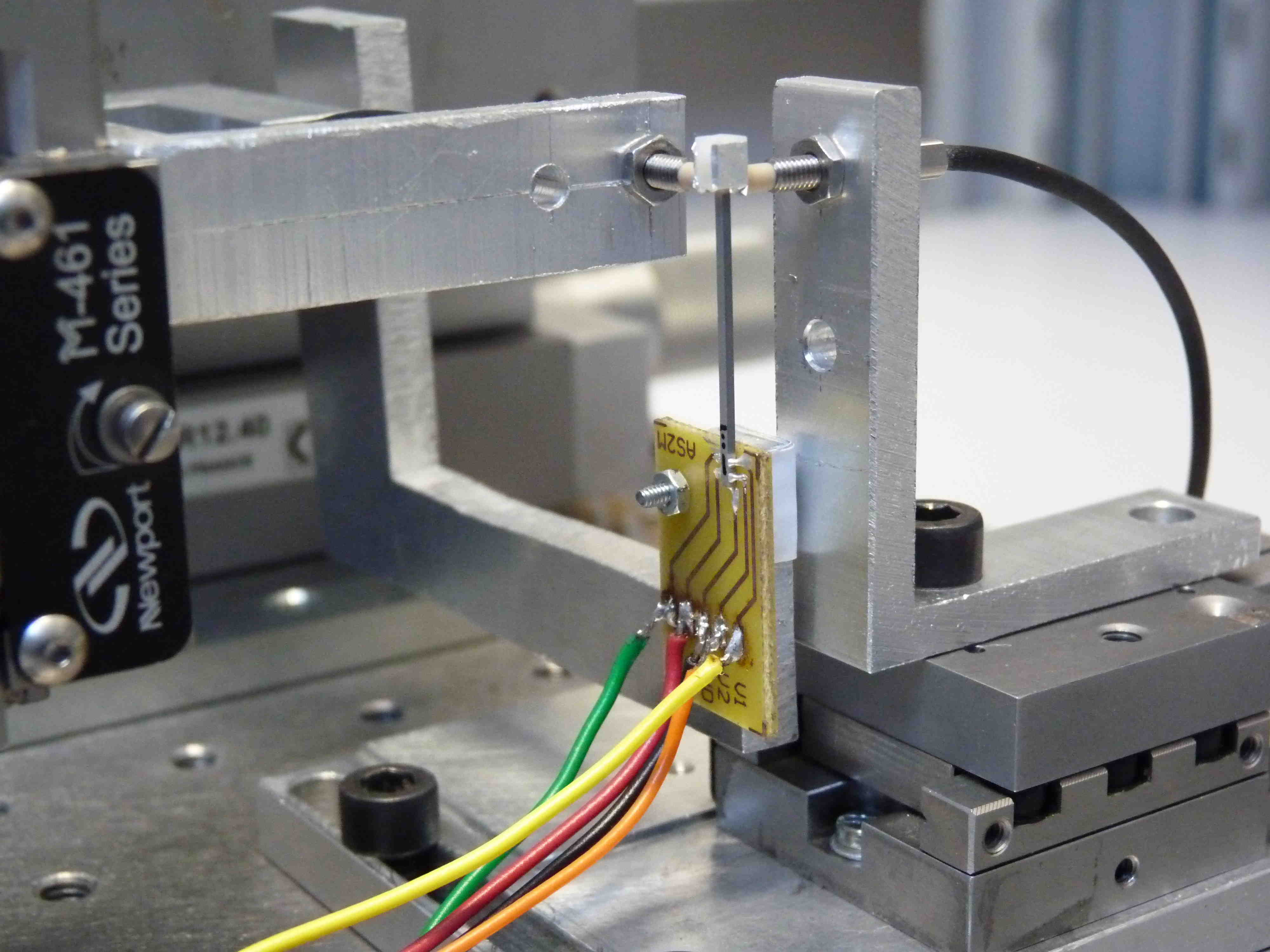



Half-day workshop on "Design of mechatronic systems for human-robotic initeraction"
(call for contribution)
The section "innovative design and mechatronics" (GT-6) of the French Robotics Network (GDR Robotique) organizes an online half-day workshop on "Design of mechatronic systems for human human-robotic initeraction"
on Tuesday the 16th of March 2021, from 14h to 17h30 French time. All presentations are in English.
Date and time: Tuesday the 16th of March, 2021, from 14h to 17h30 French-time
Mode: visioconference
Zoom link: https://ec-nantes.zoom.us/j/99746210919
Details in pdf: HERE pdf
Abstract:
Physical human-robotic interaction finds more and more applications nowadays.
The target of the workshop is to present some recent works in terms of design and control within such interaction for the improvement
of safety, ergonomy, dynamics and performances, and transparency. A mechatronic approach is particularly focused during the half-day workshop.
Detailed program:
The workshop includes two invited talks and several presentations of recent results. The program is detailed below:
14h-14h45, Invited talk: "Interaction control between humans and with robots"
Dr Etienne Burdet, Chair of Human Robotics, Imperial College, Londres
How do humans exchange haptic information through touch in order to coordinate their actions?
How could robots optimally interact with human users? By examining the behaviours of individuals
when their right hands are physically connected, we could show how haptic information enables
humans to estimate partners' motor plan and use it to improve one own performance. Embodied as a
robot partner, this model was verified as it induced the same improvements in motor performance as
a human partner. We further elucidated how the sensory exchange is influenced by the interaction
mechanics and how its benefits increase with the number of partners. These results elucidate the
haptic communication taking place between physically interacting humans and promise collaborative
robot systems with human-like assistance.
Dr. Etienne Burdet is Chair of Human Robotics at the Imperial College of Science, Technology and
Medicine in UK. He is also a visiting Professor at University College London. He holds an MSc in
Mathematics (1990), an MSc in Physics (1991), and a PhD in Robotics (1996), all from ETH-Zurich. He
was a postdoctoral fellow with TE Milner from McGill University, Canada, JE Colgate from
Northwestern University, USA and Mitsuo Kawato of ATR in Japan. Professor Burdet's group uses an
integrative approach of neuroscience and robotics to: i) investigate human motor control, and ii)
design efficient systems for training and rehabilitation, which are tested in clinical trials and
commercialised.
14h45-15h10: "EMG-based variable impedance control for robot-assisted bimanual rehabilitation"
Dr Maciej Bednarczyk, ICube
Bimanual rehabilitation is a promising type of upper limb rehabilitation. It consists in using both
healthy and impaired arm simultaneously, in a common bimanual motion, such as most daily-living
tasks. Enforcing coordination between both arms can be achieved by means of adapting the
controlled impedance of the robotic rehabilitation system. This requires guarantees on system
passivity to ensure safety and enhancing the human-robot interaction scheme with additional
information about the patient movement intentions.
15h10-15h35: "Gait rehabilitation after stroke - Design of lower-limb exoskeleton with impedance control"
Gaetan Courtois(1), Antoine Dequidt(1), Xavier Bonnet(2), Philippe Pudlo(1), (1) LAMIH UMR 8201 CNRS UPHF, (2) IBHGC - ENSAM Paris
Many robotic exoskeletons have been developed over the last two decades for medical care of people
suffering from a motor disability following an accident or illness. The challenge is to provide
complementary means dedicated to improve the effectiveness of rehabilitation protocols (by
intensifying exercises). The RehaByEXo project pursues this goal within the framework of gait
rehabilitation for people with hemiplegia due to a stroke. RehaByEXo is a structuring project of the
ARTS Carnot Institute bringing together the IBHGC, LAMPA, LAMIH and LISPEN laboratories and in
partnership with the Bordeaux University Hospital. The first step of this project is to develop a
hip-actuated lower-limb exoskeleton to perform rehabilitation exercises in the sub-acute phase of a
stroke. This presentation will focus on the development of hip actuation, its impedance control and
the man-machine interface for physiotherapists.
15h10-16h: "Realtime exoskeleton simulator for the optimisation of the mechanical design and control/command"
Dr Frederick Van Meer, COO AnatoScope
Based on the SOFA Framework, AnatoScope will present the latest results of biomechanical
simulation of an exoskeleton design in interaction with the human body. The simulator can produce
different human shapes and fit exoskeletons on the skin. Realtime simulation can be executed to
estimate the behavior of the exoskeleton, the biomechanical effects (Contact/Force/Torque ) and to
perform the control/command laws.
16h-16h45, Invited talk: "Getting a grip to the real world: Challenges of Robotic Grasping"
Dr Markus Grebenstein, Researcher and Deputy Director Institute of Robotics and Mechatronics, DLR
Markus Grebenstein received the Dipl. Ing. degree in mechanical engineering in 1997 from the
Technical University in Munich, Germany, and the Doctor of Science degree from ETH Zurich,
Switzerland, in 2013. Engaged at DLR Institute of Robotics and Mechatronics in 1996, he worked on
the development of electromechanical passenger vehicle brake systems until 1998. Since then, his
focus has turned to the research and development of anthropomorphic robotic hands and he
developed DLR Hand II and DAVID's antagonistically driven Awiwi- hand. He was leading the
development of the DLR Hand Arm System until 2012, starting from 2018 he is project lead at DLR for
the MMX Rover mission to the Martian moon Phobos.
Starting in 2000, he served as the head of Mechanical Development. Starting 2010 he has been
serving as the head of the Department of Mechatronic Components and Systems. He is the Deputy
Director of the DLR Institute of Robotics and Mechatronics since 2015.
16h45-17h10: "Design, simulation and experimental validation of an underactuated parallel robot for safe physical interaction with an operator"
Guillaume Jeanneau, LS2N
Nous proposons la conception d'un robot parallèle sous-actionné collaboratif rapide. Le
sous-actionnement est introduit par l'ajout de degrés de liberté sur les avant-bras d'un mécanisme 5
barres. Le sous actionnement permet une réduction de la masse équivalente à l'impact de manière à
réduire les efforts de contact robot humain. Un système de précharge est ajouté de manière à
augmenter la rigidité au niveau de l'effecteur sans nuire aux performances en termes de sécurité.
Deux modèles complet et simplifié permettant une évaluation en simulation des efforts de collision
seront présentés ainsi qu'une validation expérimentale.
17h10-17h35: "Physical Human-Robot Interaction for Object Co-manipulation : Toward an
Increasing Consideration of human system modeling and estimation"
Mourad Benoussaad, MAVRICS research group, LGP laboratory, ENIT-INPT, Tarbes
Physical Human-robot Interaction is a promising and challenging robotics field, however this synergy
requires to be improved to achieve complex tasks. One of these complexe tasks can be a
co-manipulation (between human and robot) of heavy, bulky or flexible objects, which can be a
product, a tool or another human. Therefore, to consider a certain number of issues related to the
interaction stability, safety and human ergonomics and comfort, the human should be considered
more deeply as a system than just an external perturbation force.
==============================================
Technical Committee: The workshop is within the IFAC T.C.4.2-Mechatronic Systems activities.
The following special issue (SI) is related to the thematics of the workshop and will be published at the IFAC Mechatronics journal. We invite you to massively submit your contribution at this SI:
IFAC Mechatronics - special issue on:
"Physical Human-Robot Interaction and Co-Manipulation: Mechatronics Approaches". Deadline: June 1, 2021.
==============================================
The organizers:
Pierre Renaud, Full Professor, ICube, INSA, Starsbourg France
Micky Rakotondrabe, Full Professor, LGP Laboratory, ENIT-INPT, Tarbes France
Stéphane Caro, Director of Research, CNRS LS2N, Nantes France
==============================================

Recommended Explorer for this website: not- IE
Webmaster: Micky Rakotondrabe (m.rakoton.net)